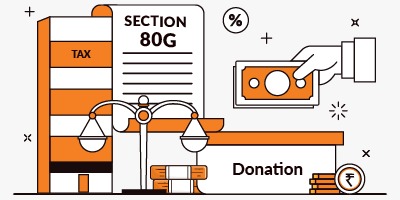N.K. Mitra, J.@mdashThis is an application filed by the defendant-petitioner for recalling the order of this Hon''ble Court dated 2nd April. 1985 passed on the application for compromise filed in C. R. No. 3737 of 1979 alleging inter alia, that the said compromise was a nullity, inasmuch as. the Court without being satisfied about the existence of a ground of ejectment as alleged in the ejectment suit out of which the said Civil Rule arose, allowed the said compromise petition. The learned Counsel for the defendant-petitioner contends inter alia, that it is well-settled that if the compromise of an ejectment suit is effected by a Court without being satisfied about the existence of a ground of ejectment as contained in the Act. under which the said suit was filed, and/or if in the said compromise petition there is no admission of any of such ground, any compromise decree passed on such compromise petition is a nullity and cannot by given effect to and refers to several decisions, namely, 86 CWN 739 corresponding to 1982(1) CHN 410 ;
2. The learned Advocate for the plaintiff-opposite party, however, contends that since the defendant-petitioner subsequent to the order passed on the compromise petition filed an undertaking to this Court to vacate the suit premises and partly complied with the said undertaking in giving up possession of the first floor of the suit premises in favour of the plaintiff-opposite party, the defendant- petitioner is estopped for challenging the compromise decree any more and the principle of at least constructive res judicata will apply to the facts and circumstances of the case and refers to the decision of the Supreme Court in
3. The learned Counsel for the petitioner in reply however, refers to the decision in
4. Considered the submissions of the respective Advocates for the parties and also the facts and circumstances of the case. It is well settled that if in the compromise decree passed in an ejectment suit there is no mentioning of existence about any ground of eviction and/or if the Court without being satisfied about the existence of a ground of eviction passes a compromise decree in an ejectment suit, such decree is a nullity and can subsequently be set.aside and/or recalled.
5. So far as the disputed compromise petition as filed in the present case is concerned, the said petition strictly speaking, does not contain anything about the existence of a ground of ejectment, nor the order of the Hon''ble Court allowing the compromise petition contains any finding, arrived at by the Court regarding existence of any such ground, and on that score, the compromise decree can be said to be a nullity and is recalled and/or set aside. Moreover, it has also been held in
6. Compromise decree and undertaking are two distinctly separate and/or different matters, and both cannot be joined together, nor one can overlap the other. If, in the compromise petition pursuant to which the compromise decree is passed, a time limit is fixed by the judgment-debtor to vacate the suit premises, that would not amount to an undertaking given to the Court. However, if an undertaking is given to the Court, no matter whether there is a defective compromise decree or not, it must be held to be a separate act on the part of the person giving such undertaking, independent of such compromise decree, and acting on his own volition and with eyes open, and after an undertaking is given and partly complied with, in my view, it does not lie in the mouth of the person giving such undertaking to contend that such undertaking cannot be enforced as it is a part of the compromise decree which is a nullity, inasmuch as, in the present case, knowing fully well that the impugned compromise decree was a nullity, the defendant-petitioner had given a written undertaking to this Court to vacate the suit premises and partly complied with the same and prayed for several extension of time which were granted to him. Accordingly, in my view, the petitioner is estopped by conduct from backing out from such undertaking now. Moreover, there is also no allegation made by the petitioner in the application for recalling that such undertaking was given under duress. Accordingly, even if the impugned compromise decree is held to be a nullity, the petitioner as also his heirs (since the original tenant is dead) are bound to carry out the written undertaking given to the Court as referred to above. The application for recalling is thus disposed of as above without any order as to costs and as a last chance, the present petitioners are given time to vacate the remaining portion of the suit premises as per the said undertaking, within 15th of October, 1992 failing which the petitioners would be properly dealt with by this Court for violating such written undertaking.

